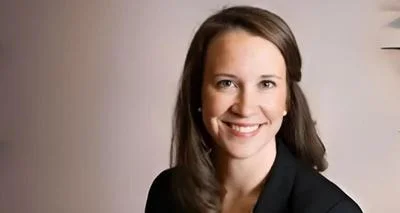Mike Nichols President | Official website
Mike Nichols President | Official website
Wisconsin is distributing nearly $79 million in federal funds to private businesses for the construction of electric vehicle (EV) charging stations. This initiative comes at a critical juncture for both the EV and charging station industries. Despite recent industry turmoil, the Wisconsin Department of Transportation (WisDOT) remains committed to establishing a statewide network.
State lawmakers from both parties have supported EV developments as long as federal funding is utilized. The state has yet to allocate its own tax funds for this network or offer state tax credits for electric vehicles. A Republican-controlled Legislature passed two bills enabling eligibility for these federal funds, with minimal opposition. Democratic Governor Tony Evers signed the bills into law.
Republican state Senator Howard Marklein emphasized that the funding source is federal taxpayers, not state funds. "I was more focused on allowing the private sector to re-sell electricity as a product without being regulated as a utility," Marklein said. However, he expressed uncertainty about whether EVs are "the way of the future" in Wisconsin.
The Wisconsin Electric Vehicle Infrastructure (WEVI) plan aims to build approximately 65 charging stations near highway interchanges, with one every 50 miles along federally designated “Alternative Fuel Corridors.” Additional stations may be constructed if funds remain available. Currently, Wisconsin has around 580 charging stations concentrated in cities like Madison and Milwaukee.
Federal funds will cover up to 80% of each station's cost, with successful bidders covering the remainder. Proposals will be selected based on a detailed point system considering factors such as low bids and strategic locations within the designated plan.
A WisDOT spokesperson confirmed that applications are under review and grant awards will be issued early this summer. The department declined to disclose application numbers or specifics about private funding contributions and average station costs. According to EVgo, capital costs for minimally compliant sites range from $500,000 to $750,000.
State Senator Steve Nass criticized the legislation as "just another example of crony capitalism." He argued that if Level 3 chargers were truly necessary advancements, private sectors would fund them independently. Nass also questioned the environmental benefits of EVs when considering material procurement and increased electricity production needs.
The distribution of $5 billion in public funding from the 2021 federal infrastructure law faces uncertainty amid broader industry challenges. Tesla CEO Elon Musk recently announced significant layoffs within his charging station development team but later assured commitment to his charging program despite internal restructuring issues.
Nationally, EV sales fell by 7.3% in Q1 2024 after consistent growth over previous quarters despite substantial tax credits and subsidies. Bill Sepic of the Wisconsin Automobile & Truck Dealers Association linked this trend to rising interest rates and cost concerns while predicting year-over-year sales growth.
Wisconsin lags behind most states in EV adoption due to its rural nature and cold climate affecting vehicle range. Only 0.29% of registered vehicles were electric through 2022, significantly below national averages.
AAA's Nick Jarmusz highlighted consumer concerns about cold weather impacts on EV range and higher costs associated with battery replacement or repair as major deterrents for potential buyers.
The Biden administration continues supporting the EV industry with new regulations aiming for half of new car sales to be electric or hybrid by 2032, necessitating expanded charging infrastructure. Critics argue that full conversion to electric vehicles would have minimal impact on global carbon emissions while causing significant environmental damage during manufacturing and operation processes.
Nass concluded that recent legislative actions were driven by business interests rather than public or environmental considerations: "These bills were not written with the goal of meeting the needs of EV owners and the motoring public in general but to ensure that a handful of large businesses in Wisconsin receive most, if not all, of the $78 million."
Robert VerBruggen is a fellow at the Manhattan Institute.
---






 Alerts Sign-up
Alerts Sign-up